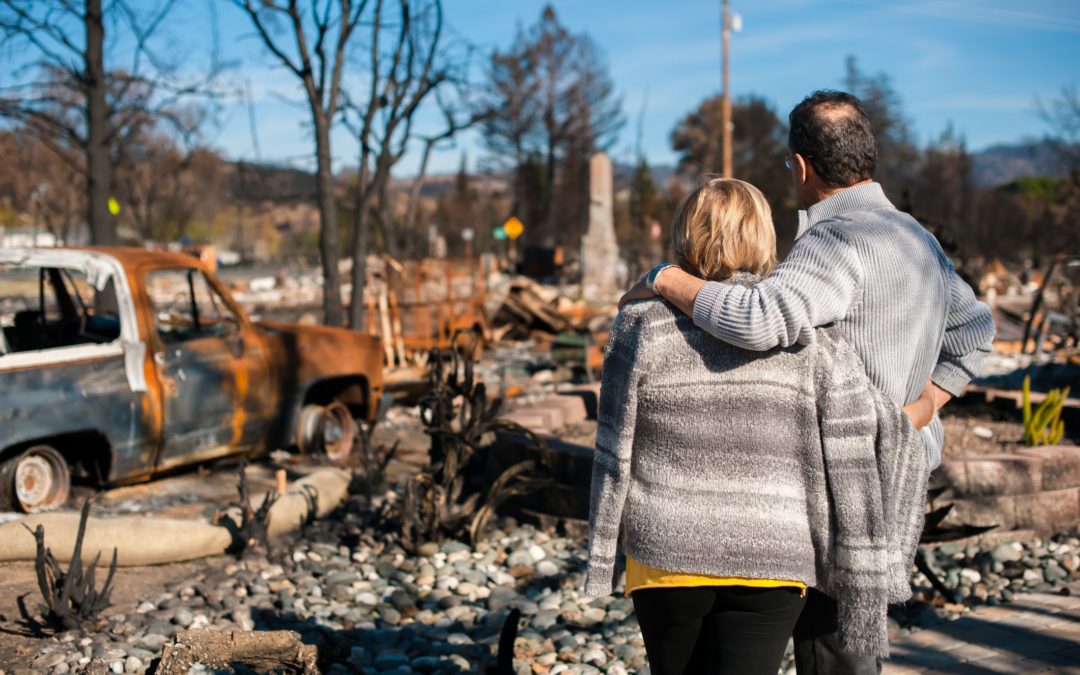
by Innovative Mobility Research | Sep 12, 2019 |
Susan Shaheen, PhD, Stephen Wong, and Adam Cohen September 12, 2019 Natural and man-made disasters and their emergency evacuations are more common than many people realize, and remain a common strategy to ensure safety. According to the U.S. Department of Homeland Security (DHS) Federal Emergency Management Agency (FEMA), the most frequent causes of evacuations in the U.S. each year are fires and floods. Due to the heavy reliance on private vehicles in the U.S., evacuations using personally owned automobiles have historically been the focus of many emergency managers. However, this can be problematic for public transit dependent and carless households who may have transportation challenges in an emergency. The critical role of evacuation planning for carless households became a serious issue during Hurricane Katrina when evacuation plans did not adequately include a process for evacuating the estimated 200,000 to 300,000 people without reliable personal transportation. However, New Orleans is not alone. Research has found that one-third of the 50 largest cities in the U.S. do not have evacuation plans, and less than half of cities with evacuation plans mention carless or vulnerable populations. Lessons learned from past experiences in emergency management include… Read the full article...
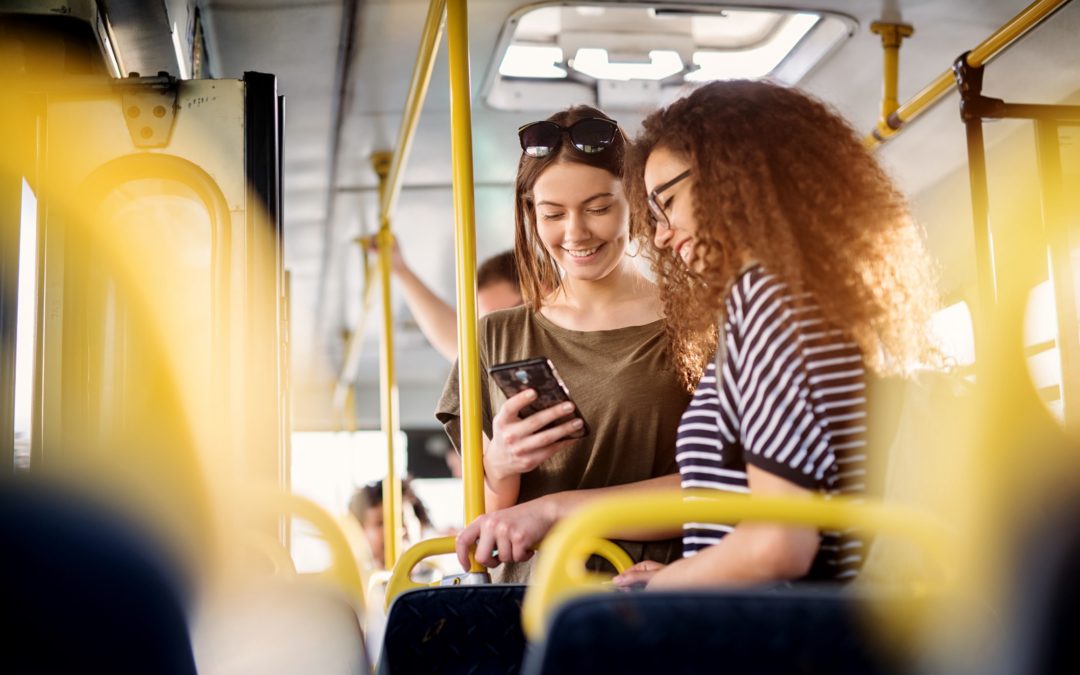
by Innovative Mobility Research | Aug 30, 2019 |
Susan Shaheen, PhD August 29, 2019 The market for personal mobility is changing rapidly due to shifting demographics and social trends, as well as technological advances such as: smartphones, information processing, and widespread data connectivity. Over the past year, we have been writing about Mobility on Demand(MOD): an innovative transportation concept evolving around connected travelers, where consumers can access mobility and goods delivery services on-demand by dispatching or using public transportation, shared mobility, courier services, urban air mobility, and other innovative and emerging technologies. MOD is based on the principle that transportation is a commodity where modes have economic values that are distinguishable in terms of cost, journey time, wait time, number of connections, convenience, and other attributes. In January 2019, the U.S. Department of Transportation (USDOT) and the Transportation Research Board (TRB) of the National Academies of Sciences, Engineering, and Medicine co-hosted a workshop on: “Mobility on Demand — A Smart, Sustainable, and Equitable Future” at the 98th Annual Meeting of the Transportation Research Board in Washington, DC. The workshop facilitated a dialogue among over 150 participants from… Read the full article...
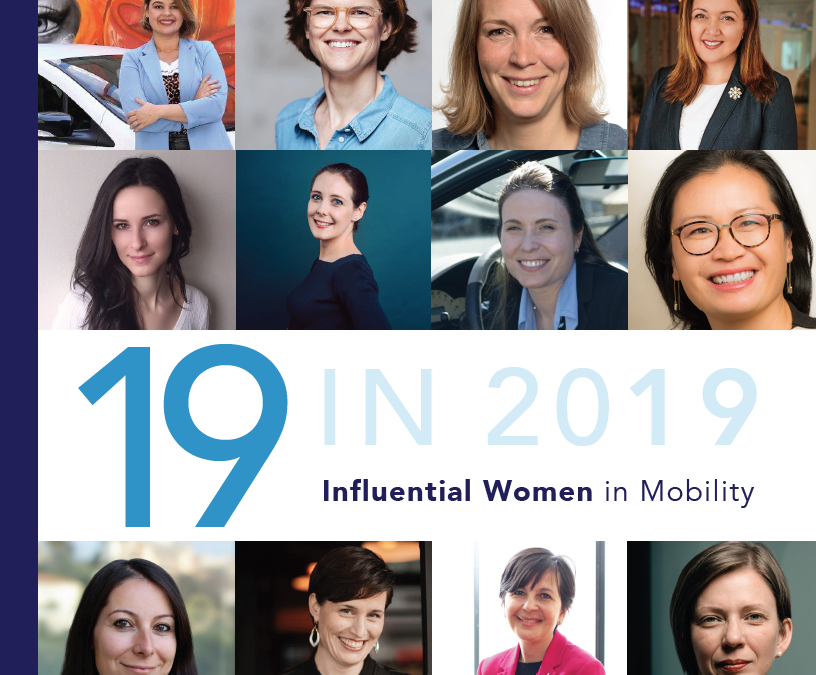
by Innovative Mobility Research | Jul 18, 2019 |
Vulog July 18, 2019 Congratulations to Susan Shaheen, who was featured as one of Vulog’s Top 19 of 2019 Influential Women in Mobility. Vulog has released a publication featuring profiles of leading women in the mobility sector worldwide who “truly embody the notion of transforming ideas to impact.” Download the report here: Top 19 of 2019 Influential Women in...
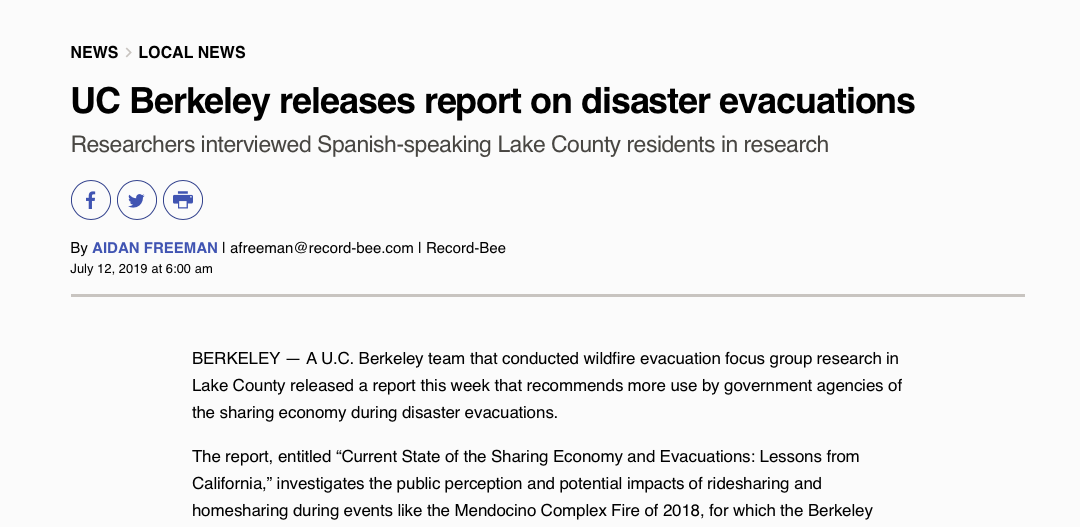
by Innovative Mobility Research | Jul 15, 2019 |
Aidan Freeman July 12, 2019 A U.C. Berkeley team that conducted wildfire evacuation focus group research in Lake County released a report this week that recommends more use by government agencies of the sharing economy during disaster evacuations. The report, entitled “Current State of the Sharing Economy and Evacuations: Lessons from California,” investigates the public perception and potential impacts of ridesharing and homesharing during events like the Mendocino Complex Fire of 2018, for which the Berkeley team hosted a Spanish-speaking focus group to study that demographic’s stance on sharing homes or vehicles during emergencies. The Berkeley study’s primary authors, Stephen Wong and Susan Shaheen, write that “In many evacuations including wildfire evacuations, public agencies often do not have enough resources to evacuate and shelter all citizens.” “Consequently,” they continue, “we propose that the sharing economy, through private companies and/or private citizens, could be leveraged in disasters for transportation and sheltering resources.” The need for more efficient means of transport during and emergency evacuation was made horrifically clear during the Camp Fire in November when thousands of Paradise residents attempted to flee the approaching fire at once along just a few viable exit routes, resulting in congestion and many casualties. In Lake County, roughly 19,000 residents were evacuated during the Mendocino Complex Fire last year. But in rural counties like Lake, Wong noted in an interview, the sharing economy manifests differently than it does in urban areas. Tech-based ridesharing companies like Uber and Lyft are hardly present in Lake County at all, and while homeshares through Airbnb are present here, most of the subjects in the Berkeley focus group were...
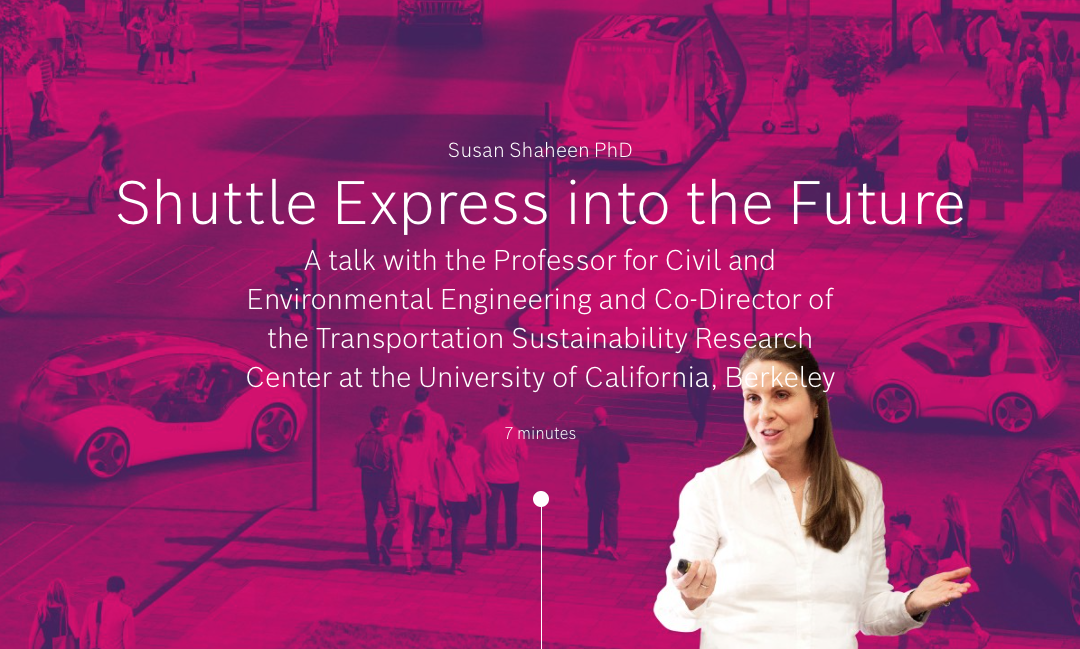
by Innovative Mobility Research | Jun 28, 2019 |
Bosch June 14, 2019 Does the future of our everyday mobility lie in self-driving shuttle busses? Professor Susan Shaheen has looked into how this new form of mobility can be organized equitably for everybody. She says the transition on our roads has already begun… Read the full article here: Shuttle Express into the...






